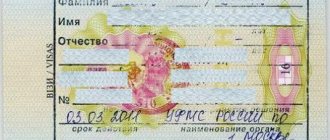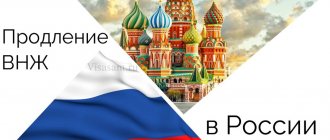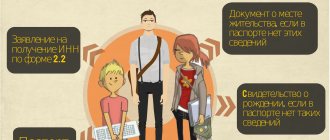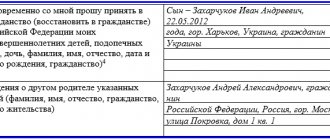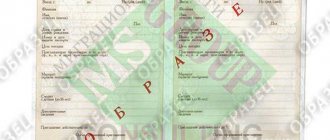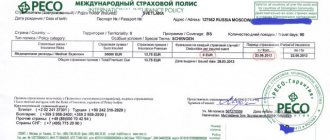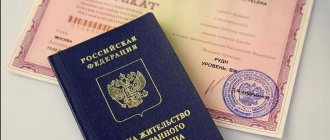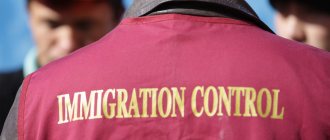What is a temporary residence permit quota?
The abbreviation stands for temporary residence permit. Such a document allows a foreign citizen or stateless person to stay on the territory of the Russian Federation for three years. Without a temporary residence permit, a foreigner has the right to stay in the Russian Federation for no more than 90 days if he arrived from a country with which Russia has visa-free travel. If the foreigner arrived on a visa, the duration of stay is limited by the duration of the visa.
The Russian Federation issues permits in a strictly defined quantity. It is allocated annually to each of the country's constituent entities. The total number of permits issued per year is the temporary residence quota. The number of quotas that will be issued in a particular subject is determined by its demographic situation. For example, in 2021, Moscow will issue 2,000 quotas, and St. Petersburg - 1,500. The Samara region has the largest number of quotas - 3,800.
What is a quota for temporary residence permits and is it possible to obtain a temporary residence permit without a quota?
The quota for temporary residence permit is the number of temporary residence permits that can be allocated to migrants within one year. Only certain categories of foreigners can obtain a temporary residence permit, regardless of the presence of quotas (excluding quotas).
This is due to clause 3 of Art. 6 of the Federal Law “On the Legal Status of Foreign Citizens in the Russian Federation” dated July 25, 2002 No. 115, which lists the categories of migrants who do not need to obtain a quota before issuing a temporary residence permit.
These categories include:
- Disabled foreigners who have children who are citizens of the Russian Federation.
- Persons born on the territory of the RSFSR who had USSR citizenship, as well as those born in the Russian Federation.
- Children of incapacitated persons with Russian citizenship. The presence of at least one parent is taken into account.
- People who are legally married to citizens of the Russian Federation who are permanently registered in Russia. In this case, the length of marriage does not matter.
- Investors who have contributed to the state economy.
- Military personnel serving under contract in the army of the Russian Federation. A temporary residence permit is issued to such persons for the duration of their service.
- People who participate in the program of voluntary resettlement of compatriots to the Russian Federation. Family members of program participants also apply for temporary residence permits without a quota.
- Persons whose children are citizens of the Russian Federation.
- Foreigners whose son or daughter is a citizen of the Russian Federation are recognized as incompetent or limited in their legal capacity.
- Minor foreigners receiving a temporary residence permit with their parents or legal guardians, or receiving a temporary residence permit at the request of a parent who is a citizen of the Russian Federation;
- Incapacitated or limited in legal capacity adult foreigners who receive a temporary residence permit with parents, guardians, trustees, or on the basis of an application from a citizen of the Russian Federation who is a parent, guardian, trustee.
Thus, the basis for obtaining a temporary residence permit under a quota is the lack of options for obtaining it in a simplified manner, as well as the presence of quotas for the current year.
Many people are interested in what the quota for temporary residence permits looks like? In fact, the migrant does not receive any documents confirming that he has received a quota. It looks like a decision of a special commission dealing with issues of quota allocation.
How to get
To obtain a temporary residence permit, a foreigner submits an application and the documents attached to it:
- to the division of the Ministry of Internal Affairs of the Russian Federation on migration issues - if the foreigner is already on the territory of the Russian Federation;
- to a diplomatic or consular office of the Russian Federation in the territory of the country of his citizenship.
The time period for obtaining a temporary residence permit depends on the country from which the foreigner arrives:
- if from a country with which the Russian Federation has visa-free travel – 60 days;
- if visa - six months.
The issuance of a document allowing long-term residence in Russia is subject to a state duty of 1,600 rubles.
How is the annual quota for temporary residence permit determined?
Every year, the Government of the Russian Federation approves both the number of quotas for temporary residence permits for a specific constituent entity of Russia, and the total number for the whole of Russia. This means that the number of temporary residence permits for citizens of foreign countries and stateless persons is legally limited to a certain limit.
A person who does not have the right to receive a temporary residence permit without a quota will be able to obtain it only if there is a quota in the region in which he wishes to settle. Once the limit of permits in a subject has been exhausted, the issuance of temporary residence permits ceases. The issuance process resumes only after the next year.
In most cases, it is impossible to obtain a residence permit and citizenship without first obtaining a temporary residence permit. Persons who want to obtain a permit should complete the application and submit the required package of documents for the quota as early as possible. It is better to do this in January or February of the new calendar year.
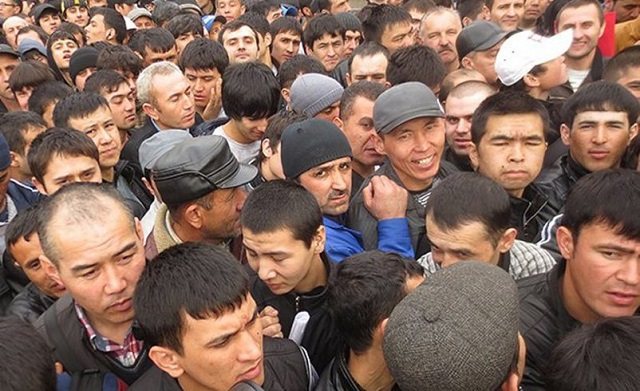
The procedure for allocating quotas by the Government of the Russian Federation
The procedure for allocating quotas for obtaining temporary residence permits for the next calendar year is as follows. No later than March 1 of each year, the Main Directorate for Migration Issues of the Ministry of Internal Affairs of the Russian Federation transmits information about foreigners who live in a particular region to the regional divisions of the Ministry of Internal Affairs according to information current at the beginning of the year.
In turn, no later than October 1, based on the information received, the regional bodies of the Ministry of Internal Affairs propose to the Main Directorate of Migration Affairs of the Ministry of Internal Affairs of Russia to accept certain quota sizes for the next year.
The following factors are taken into account:
- economic condition of the subject of the Russian Federation;
- ecology in a specific subject;
- availability of jobs for foreigners and demographic situation;
- housing in which people who have received permission can be accommodated;
- problems in the immigration sphere;
- opportunities to provide foreigners with qualified medical care;
- the impact of the criminal situation on migrants.
Taking these factors into account, the Main Directorate for Migration of the Ministry of Internal Affairs of the Russian Federation makes a conclusion about which quotas for the Russian Federation and regions to accept. The decision also depends on the number of foreigners already living in the constituent entities of the Russian Federation.
The adopted conclusion on the size of quotas is transmitted to the Government of the Russian Federation. The adoption of the quota size for the next calendar year is carried out by the Government before November 30 of the current year.
What documents are needed for a temporary residence permit?
What documents an applicant provides to obtain a temporary residence permit quota depends on whether he arrived in Russia with a visa or visa-free.
If Russia has established a visa-free border crossing procedure with the applicant’s country, to obtain a permit you will need:
- identification document;
- migration card issued to the applicant when crossing the border;
- a document confirming passing an exam on knowledge of the Russian language, Russian legislation and national history;
- receipt of payment of the state fee - provided if the applicant so desires. If there is no receipt, the fact of payment of the fee will be checked using the internal departmental database.
Persons arriving from states with which Russia has a visa entry procedure must provide, in addition to the application for a permit, the following documents:
- two personal photographs 35x45 mm;
- identification;
- a document obtained in the state in which the applicant permanently resides, stating that the applicant has no criminal record;
- medical certificate that the applicant does not have diseases that would prevent the granting of a residence permit: contagious infections, HIV, drug addiction;
- a document confirming passing an exam on knowledge of the Russian language, the basics of Russian legislation and national history.
How to fill out an application for a temporary residence permit
Order of the Ministry of Internal Affairs of Russia dated November 27, 2017 No. 891 contains an application form for a temporary residence permit quota and administrative regulations for issuing permits. In the application, the foreign citizen will have to provide personal information in detail:
- FULL NAME;
- date and place of birth;
- citizenship;
- details of an identity document issued under the laws of the applicant’s country;
- floor;
- nationality;
- religion;
- contact information;
- information about education, academic achievements, scientific degrees;
- marital status and family composition;
- work history;
- plans for the period of residence in Russia: expected address of residence, employment plans and expected sources of income.
All fields of the application must be filled out in your own hand, in block letters, in Russian.
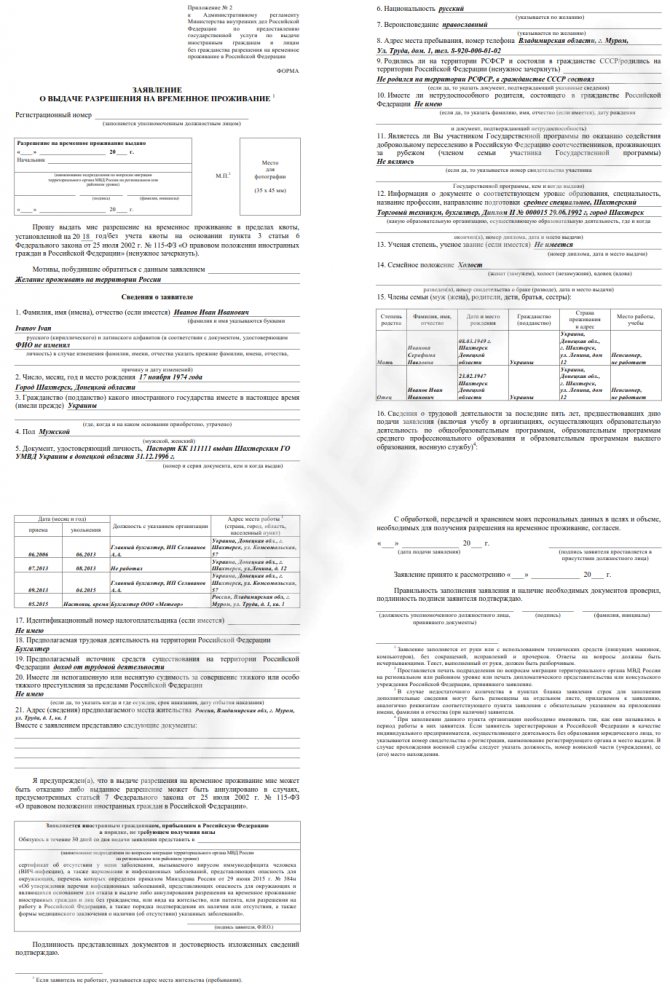
How to fill out
I’ll tell you what to fill out and how to fill it out for each item.
The motives that prompted me to make this application
Here you can specify everything you think is necessary. The most common writing example:
Live and work in the Russian Federation
You can also write:
Obtaining citizenship of the Russian Federation
These two options are already considered very hackneyed, but this does not prevent them from receiving quotas for temporary residence permits.
This is important to know: Quota for temporary residence permits in the Russian Federation for 2021: Yekaterinburg and Sverdlovsk region
If you have any close relatives with Russian citizenship, you can indicate them. In the case of relatives - citizens of the Russian Federation, you can write in the “motives”:
Obtaining Russian citizenship. Relatives (grandparents) are citizens of the Russian Federation and live in the city of St. Petersburg.
Also, if among your relatives there are those who already have some kind of status, for example, temporary residence permit or residence permit, you can indicate this in the “motives”:
Live and work in Russia. The brother has a residence permit and lives in Moscow.
You can write in more detail:
My relatives live in Russia. Grandfather lives in Moscow and is a citizen of the Russian Federation. I have a desire to live and work next to people close to me.
Full Name
Full name must be filled in block letters. That is, if you write by hand, then you need to write the letters as if they were printed on a computer - as close to this as possible. This is necessary so that there are no discrepancies.
If you provide a passport that does not indicate your middle name, then write only your last name and first name:
Ivanov Ivan
If your passport has a middle name, then write with it:
Ivanov Ivan Ivanovich
Citizenship
Here you indicate your existing citizenship, for example, “Tajikistan”, “Ukraine”, “Moldova”, etc.
Date of Birth
Can be filled in with numbers only, for example:
01/12/1982
Or write
January 12, 1992
Place of Birth
Your place of birth must be written off from your birth certificate, exactly as it is written in this document. For example:
Tashkent city, Uzbek SSR
or
Petrovka village, Donetsk district, Donetsk region, Ukrainian SSR
National passport
You fill in the details of the passport with which you arrived in the Russian Federation. That is, if you entered with a foreign passport, then all further documents, not only for the quota, are filled out using it. Example:
Passport VK 034541, issued by the Ministry of Internal Affairs of Ukraine on October 21, 2012
Address of intended place of residence
In this column you indicate the address of the residential premises according to migration registration. In cases where your migration registration is made at a legal address, then you need to indicate any residential address, for example, the address of your relative’s apartment. Don't forget about the index.
134500, Russia, Moscow, Lenina street, building 34, building 56, apartment 101
Telephone
Your phone number: or, or 8 000 000 00 00.
This is important to know: Quota for temporary residence permits in the Russian Federation for 2021: in St. Petersburg and other cities
Have you previously applied for a quota?
At this point, write how many times you have applied for a quota before. If never, then write:
didn't apply
If you have already submitted an application, then write as follows:
applied 2 times in 2021 and 2021
Family status
You can only select one of the following options:
- married;
- single/unmarried;
- divorced / divorced;
- widower/widow.
If you are in a civil marriage (that is, you did not legalize your relationship), then this does not need to be indicated.
Close relatives are citizens of the Russian Federation
If one of your relatives is a citizen of the Russian Federation, his data must be indicated in the table. You only need to indicate if your parents, children or spouse are citizens of the Russian Federation. Otherwise you write “I don’t have”.

Close relatives with temporary residence permit/residence permit
If your spouse, parents or children are foreign citizens with the status of, for example, having a temporary residence permit or residence permit in Russia, you indicate them in the table. Only those who have either a temporary residence permit or a residence permit are indicated. If there are none, then write “I don’t have.”

Education
Emphasize what your education is. For example, if you have a higher education, then emphasize it. If you do not have a specialty, indicate “I do not have.” The same goes for academic degrees.
Information about work activity
You indicate only the activities that you conducted in the city where you are applying for the quota. For example, if you apply in Moscow, then you cover your work activities only in the city of Moscow. If you worked outside of Russia or in another city, even if in the Moscow region, then this is already considered a different entity and this data does not need to be indicated.
By the way, if you really apply in Moscow, then I have a separate article for you: Quota for temporary residence permit in Moscow: how to get it in 2021.
This is important to know: Documents for the temporary residence permit quota 2021: what you need to obtain
Hiring and dismissal dates are filled in only in the [month.year] format. If you worked under a patent, be sure to indicate its number and date of issue.
Type (source) and amount of average annual income
Here you indicate the amount for the year, and it must be no less than the cost of living of your city.
For example, let's look at Moscow: the cost of living for the working-age population is 18,580 rubles, which means that for one adult the amount of income should be 12 x 18,580 rubles, which is equal to 222,960 rubles per year.
If you are with a child, then consider your cost of living and add it to the cost of living for children. In Moscow it was 13,938 rubles. This means: (12 x 18,580) + (12 x 13,938) = 390,216 rubles.
Please note that the cost of living varies for adults, children and pensioners. It also differs by region. And this minimum also changes every year. The latest data for your region is always taken.
How to record income on your application:
Salary from place of work. Average annual income is 390,216 rubles.
If your salary is not enough, you can indicate income from personal savings:
Salary and personal savings - 400,000 rubles.
What to do if refused
You can try to challenge an unjustified refusal. There are two orders:
- administrative, which involves filing a complaint either with the head of the unit of the Ministry of Internal Affairs of the Russian Federation that issued the refusal, or with a higher authority;
- judicial - to the district court at the location of the unit of the Ministry of Internal Affairs of the Russian Federation.
If, based on the results of review of documents, a citizen is refused permission, he has the right to re-submit an application, but not earlier than one year from the date of receipt of the refusal.
